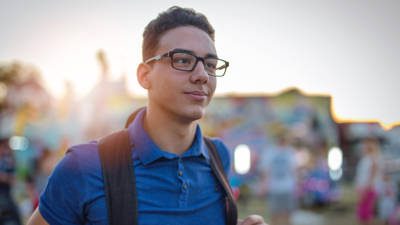Courtney McCrimmon is a graduate of Virginia’s Hampton University, where she received her Bachelor of Arts in psychology. Here, she reflects on why she opted to enroll in and her experience at a Historically Black College or University (HBCU).
There is no “right” choice when it comes to choosing the colleges to apply to, only what’s right for you. However, it may help to hear how other people chose their colleges while you create your college list. One popular category worth consideration is an HBCU.
What makes a college an HBCU? According to the Thurgood Marshall College Fund, a nonprofit that exclusively represents the Black College Community, an HBCU is a higher education institution accredited and established prior to 1964, whose principal mission was to educate African Americans. While students of all races and ethnicities can apply and attend HBCUs, they are schools with historic roots and missions to provide exceptional educational opportunities for Black students. Here, one student shares her experience at Hampton University in Virginia.
I didn’t always know that I wanted to attend an HBCU, but I grew up in Washington, DC, and was a student at Benjamin Banneker Academic High School, where the majority of students are Black. I had a memorable experience there, including sitting onstage with President Barack Obama as he delivered a back-to-school speech, so I already had some idea of the benefits an HBCU could offer.
At a college fair during my junior year, I met a woman who had recently graduated from Virginia’s Hampton University. She mentioned the school was getting ready to launch a five-year master’s program in psychology. Given that I knew as early as middle school that psychology would be my field of choice, this information was music to my ears. Plus, as an IB (International Baccalaureate®) student, I was interested in the rigor of a five-year combined bachelor’s and master’s program.
I did apply to other schools, including other HBCUs, with quality psychology programs. However, I have an aunt who attended Hampton, and hearing firsthand about the lasting friendships she developed there and the school’s strong academics really sealed the deal for me.
Students at Hampton come from all over the country, each equipped with a different perspective about the minority experience in America.
At Hampton, I found something I very much appreciated: the chance to join a community made up mainly of minority students. Even though some of us shared the same skin tone, everyone brought their own unique values and culture to the table. Students at Hampton come from all over the country, each equipped with a different perspective about the minority experience in America. I’m also grateful that I had the opportunity to network with so many other minority students who were working to attain the same strengths and successes as I was. Being part of that kind of community is motivating—especially for students like myself who are driven and goal-oriented.

I also discovered a network of professors and informal mentors who helped me select, apply for, and prepare to interview for internships that will deeply impact my career in psychology. Last year, I conducted a research study examining the way social capital affects academic success in college students. Statistically, I found the effect to be considerable. My subjects came from Hampton, which enabled me to look specifically at the benefits of an HBCU and highlight the value of these schools. It turns out that given how much social capital they can create through networking and resource accessibility, they can positively affect educational achievement, student behavior and graduation rates.
I’ve been doing advocacy work for seven years—since well before my tenure at Hampton—but attending the school shifted my research focus within psychology. I’m still compelled to advocate for victims of human trafficking, violence, and trauma, but attending an HBCU sparked my interest in researching and working specifically with minority populations.
Part of that interest was fostered by my professors, who instilled the importance of being well-rounded and prepared to enter spaces that aren’t majority-minority. I did not feel sheltered in any way as a student—my professors were fully transparent about life beyond our university experience.
I’ve noticed that Hampton graduates are very proud, and the result is a strong and active alumni network, which I’m excited to now be a part of. Many people seem to truly look forward to coming back to campus to see how the community continues to grow and evolve. This robust and connected alumni network not only offers a sense of a shared experience, but it also creates a range of opportunities, especially for young graduates like me.
During my years at Hampton University, I felt extremely supported by my friends and professors, all of whom did everything possible to make sure I had the skills to serve both myself and the community after graduation. I can’t imagine attending a college that was a better fit for me.
International Baccalaureate® is a trademark registered by the International Baccalaureate Organization, which is not affiliated with, and does not endorse, this site.




